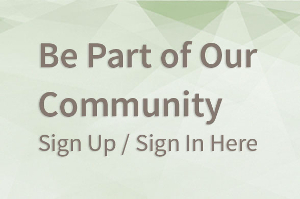BK Blog Post
Press Release:Humble Consulting
 Posted by
Elizabeth McKellar,
Production Assistant,
Berrett-Koehler Publishers.
Posted by
Elizabeth McKellar,
Production Assistant,
Berrett-Koehler Publishers.
Elizabeth McKellar is a Production Assistant at BK.
Humble Consulting:
How to Provide Real Help Faster
By Edgar H. Schein
“A fine blend of poetic writing and practical methodology. It is an intimate conversation about how service, in this case consulting, works in the real world. All who want a deeper understanding of the way to create relationships that produce outcomes will value this book. To simply recommend it is an understatement.”
— Peter Block, Author of Flawless Consulting and Stewardship
Gone are the days of canned answers and tidy diagnosis of problems that compared to modern issues, could be classified as simple at best. In this new globalized world, where specializations and an increased pace of change add new complex layers to the search for results. Organizations face problems today that are too messy and complicated for consultants to simply play doctor: run a few tests, offer a diagnosis of the “problem,” and recommend a solution. Well-meaning consultants often end up working on the wrong problem, misunderstanding the client organization’s culture, or ignoring the fact that constant change makes today’s solutions obsolete tomorrow.
Therefore, a new consulting model was created. To help consultants deal with the new problems, new complex client systems, and the new sense of urgency in clients. Edgar H. Schein met the demand and created a new model and a new book to explain it all, Humble Consulting: How to Provide Real Help Faster ($19.95, PB original, 240 pages, 5.5" x 8.5", ISBN 978-1-62656-720-7), releasing Spring 2016 by Berrett-Koehler Publishers.
In Humble Consulting, Edgar Schein outlines the basics of a new consulting approach. He argues that consultants and coaches have to jettison the old idea of professional distance and work with their clients in a more personal way, emphasizing authentic openness, curiosity, and humility. Schein shows how to create an atmosphere of genuine trust and caring so that clients can share what’s really on their minds. Consultants and clients can then jointly discover what needs to be done. Working together from the outset like this speeds things up as it obviates the need for elaborate diagnostic tests and avoids solutions that might look good on paper but don’t fit an organization’s on-the-ground reality.
Schein draws deeply on his own decades of experience, offering over two-dozen case studies that illuminate each stage of the humble consulting process. Just as he did with Process Consultation nearly fifty years ago, Schein has once again revolutionized the field, enabling consultants to be more genuinely helpful and vastly more effective.
Edgar Schein is the Society of Sloan Fellows Professor of Management Emeritus and a professor emeritus at the MIT Sloan School of Management. He has defined the field of organizational culture and has consulted with many organizations in the United States and overseas on organizational culture, organization development, process consultation, and career dynamics. Edgar Schein currently resides in Palo Alto, CA
What People Are Saying
“This is the first book I now recommend to consultants young and old: for without humility¬¬¬— a stance wide open, a state of ‘not knowing,’ and totally vulnerable and present— you cannot do this work. The message: make humility your greatest strength, and never lose it.”
—David L. Cooperrider, coauthor of Appreciative Inquiry and Fairmount Minerals Professor of Social Entrepreneurship, Weatherhead School of Management, Case Western Reserve University.
“Ed Schein takes the principles of Humble Inquiry and beautifully extends them to the consulting process in this book. Every consultant should read this for insights into how we should deal with our doubts, questions, and anxieties. This is another major contribution to our work and our field from Dr. Schein.”—Matt Minahan, Chair, Board of Trustees, OD Network
“Finally, a consulting process that demonstrates and emulates the type of culture toward which organizations and their leaders aspire.” —Robert Cooke, author of Human Synergistic’ Organizational Culture Inventory





